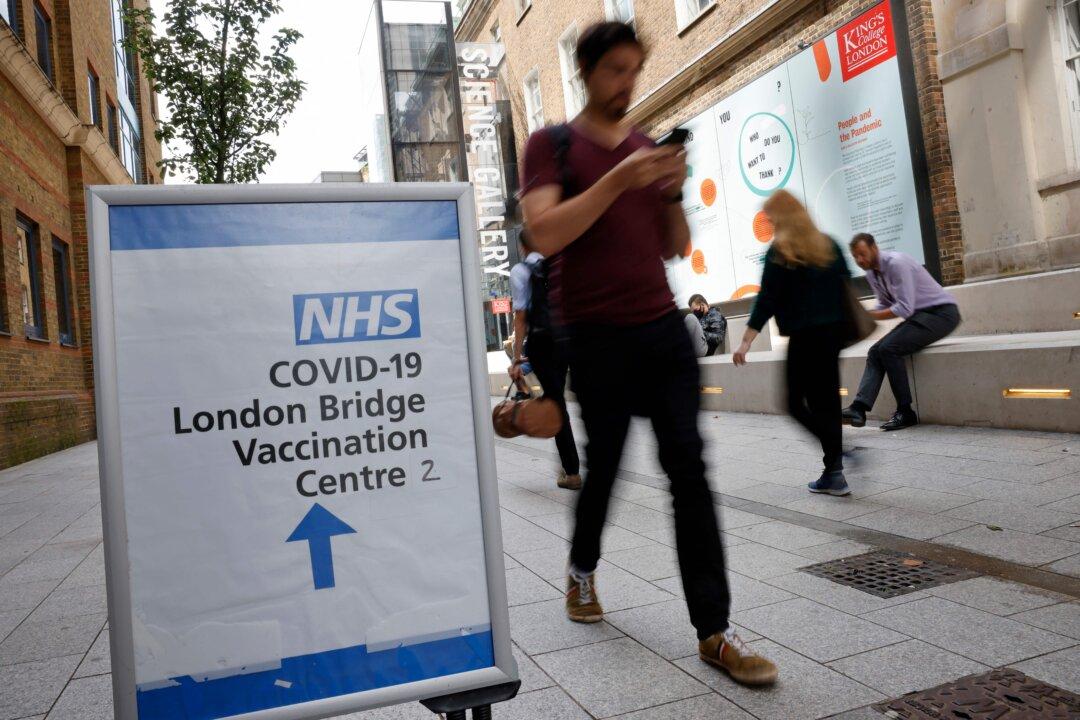With an exceptionally high vaccine takeup rate in the UK’s adult population, blanket CCP (Chinese Communist Party) virus policies can no longer be justified, a government adviser said on Wednesday.
Professor Andrew Hayward, a member of the government’s Scientific Advisory Group for Emergencies (SAGE), made the remarks when asked if the UK should follow Germany and stop providing free tests for asymptomatic people.





